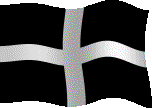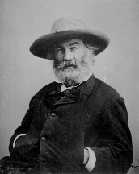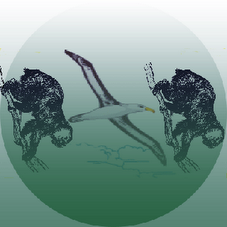The surprise winner of this year's internationally-famed annual Carn Gloose Lottery can now be revealed to be none other than Pendeen man, Simon Jacka (37). Mr Jacka, pictured here with his huge cheque following the presentation at the Newlyn Deep Sea Fishermen's Mission, accompanied by some rapidly-appearing and ever hopeful female admirers (all of whom work in the Newlyn Kwop), said that he had bought his £5 ticket some three months ago and then promptly forgot all about it.
Mr Jacka, pictured here with his huge cheque following the presentation at the Newlyn Deep Sea Fishermen's Mission, accompanied by some rapidly-appearing and ever hopeful female admirers (all of whom work in the Newlyn Kwop), said that he had bought his £5 ticket some three months ago and then promptly forgot all about it.
"When I 'eard they numbers comin' up on Radio Kernow, it sounded a bit familiar. I 'ad plum fergot I 'ad that ticket, but when I 'eard they numbers, I pulled un out and couldn' bleeve I'd won the bleddy thing!"
Literally tens of tickets are sold throughout the year to hopefuls, who all have their eye on the big prize. This year the winning ticket brings Mr Jacka the princely sum of £341.95. Mr Jacka (42) is single and works over St Erth Creamery as a cleaner. He has, over the years, acquired a reputation as something of a gambling playboy on the West Cornwall scene and can often be seen down the Mecca Bingo, but a win on this scale was beyond his wildest dreams
Mr Jacka (39) plays trombone in Pendeen band and came 5th in the sack race in his penultimate year at primary school. His mother, Lizzie (96), who lives nearby in an old folks' home, was over the moon.
"Now ee've won 'is fortune, all ee duh want now is to settle down with sum nice li'l maid", she said.
The nice little maids in the picture are from the left Rowena Pascoe (18, cheese counter), Olive Pengelly (21, bacon counter), Avril Pearce (23, fruit and vegetables) and Lavinia Andrewartha (19, till). Unfortunately, when the girls realised that the winnings were £341.95 and not £341,950, they disappeared as quickly as they came.
ADVERTISEMENT
RELUBBUS AIRWAYS ARE PROUD TO ANNOUNCE THE RE-INTRODUCTION OF THEIR POPULAR "SELECTOR" FLIGHTS
Relubbus Airways, "the people's choice" airline, with scheduled daily return flights from Relubbus International airport to St Just airport, Newquay, and Wellington in New Zealand, has succumbed to enormous public pressure and is re-introducing its hugely popular, but controversial, "Selector" flights. Pictured on the left is the Merlin turbo-prop nine-seater, manufactured by the Cornish Aircraft Corporation (CAC) at Rosudgeon, that will be used for the flights, which are regarded as the ultimate thrill in air travel.
Pictured on the left is the Merlin turbo-prop nine-seater, manufactured by the Cornish Aircraft Corporation (CAC) at Rosudgeon, that will be used for the flights, which are regarded as the ultimate thrill in air travel.
The Selector is a variant of musical chairs with one crucial difference. Passengers are secured into their seats with hand and ankle cuffs. When safely airborne, the Selector is switched on. Stirring music is heard -- vigorously hummed or whistled by the pilot. A light on top of the headrest of each seat is illuminated -- one after the other. When the music stops, the occupant of the illuminated seat is "selected" and receives a 150,000 volts electric shock.
In an atmosphere of ever growing suspense, up to three selections can be made per flight.
One of the survivors from the last flight in June last year commented, "You just don't know suspense till you've been on a Selector -- it could be curtains for you! You feel so relieved when you are one of the last six, who will touch down, but then you can't wait to get up there again for that special buzz!"
Selector flights will start next week from Relubbus International and will cost £8500 per person. Special rates for "Get the Groom" stag parties!! Tel. Relubbus 456830
PENDEEN MAN WINS CARN GLOOSE LOTTERY
Posted by
Editor: Sylvanus Penhaul
0
comments. CLICK HERE TO ADD A COMMENT
![]()
Labels: Carn Gloose, Cornish Aircraft Corporation, Kwop, lottery, Newlyn, Pendeen, Rosudgeon
LIECHTENSTEIN NAVY VISITS NEWLYN
Newlyn was yesterday graced with the official visit of the flagship of the Royal Liechtenstein Navy, HMS Furzbeutel, under the command of his Excellency High Admiral Adolf von Strüdli-Müdli (47). Pictured on the left in his demonstration case, the High Admiral is an eminent emissary of the Liechtenstein monarchy. Some attribute his rapid rise through the ranks of the Liechtenstein navy to the fact that he was the official whipping boy for the reigning Prince, Hans Adam, when the latter was a boy.
Pictured on the left in his demonstration case, the High Admiral is an eminent emissary of the Liechtenstein monarchy. Some attribute his rapid rise through the ranks of the Liechtenstein navy to the fact that he was the official whipping boy for the reigning Prince, Hans Adam, when the latter was a boy.
Hans Adam was such a notoriously naughty lad that Adolf all too frequently had to take the cane on his behalf. Hence, Adolf's meteoric rise through the Navy is widely thought to be owed to his childhood role as protector of the royal bum.
Given the sometimes savage treatment meted out to him in early years, the High Admiral is now protected most of the time by his demonstration case, in which he meets the public.
Crowds of people, numbering 3 or 4, jostled with one and another and clustered around the end of Newlyn pier, straining to catch a glimpse of the noble vessel as it was towed into the harbour with the High Admiral's presentation case proudly on display on the deck. HMS Furzbeutel, shown here on the left, is currently the only ship, as well as the flagship, of the Liechtenstein Navy. It is manned by the entire Navy, which totals three men (apart from the High Admiral, of course!).
HMS Furzbeutel, shown here on the left, is currently the only ship, as well as the flagship, of the Liechtenstein Navy. It is manned by the entire Navy, which totals three men (apart from the High Admiral, of course!).
In the picture on the left you can glimpse the three (together with the High Admiral in his case) being taken to shore in a cutter. Once ashore they were treated to a fish and chip supper at Harold Jewel's, following which they repaired to the Dolphin Inn for a civic drink-up.
ADVERTISEMENT
Not progressing fast enough in your chosen career? Then come to the Heamoor Napoleon Bonaparte School of Management.
Mr Napoleon Bonaparte, of 7 Parc Wartha Road, Heamoor, is pleased to be able offer top level coaching to people who really want to get to the top of their career, "just like my great-great-great-grandfather". Mr Bonaparte, pictured here on the left in his "best gear" is by day a sales assistant in Wilton & Nichols ironmongers in Penzance, although he doesn't wear his "best gear" to work in the shop, where, after 35 years solid service, he is the acknowledged expert on all sorts of nails and screws, and where he is known simply as Bert Trenwith (50).
Mr Bonaparte, pictured here on the left in his "best gear" is by day a sales assistant in Wilton & Nichols ironmongers in Penzance, although he doesn't wear his "best gear" to work in the shop, where, after 35 years solid service, he is the acknowledged expert on all sorts of nails and screws, and where he is known simply as Bert Trenwith (50).
However, by evening -- after he has had his tea -- he transforms into his alter ego and likes to be known as "Nappy". Nappy, who lives with his Enty Dora, is allowed to use the front room for his high-level training courses, which last just 30 minutes each, so that he is in time to watch Eastenders with his Enty.
The courses are a little on the expensive side, costing £15 for each session, but, as Nappy says, "Jes look what 'appened to Warren Buffet, Bill Gates and Alan Sugar, oo've all been 'ere before they made their millions!"
Without giving too much away, Nappy believes that the secret to a top level career lies in how you stand -- your posture. The lower buttons on the shirt must be opened and the right hand inserted, as though one had some sort of irritating itch. We can't give any more away -- the rest you will learn from Nappy.
Courses take place on Monday, Wednesday, and Friday evenings. They start punctually at 7.00 pm and numbers are limited to no more than 45 people -- cash up front.
Come to Nappy! Change your life! Get yourself a Nappy Change!!
Posted by
Editor: Sylvanus Penhaul
0
comments. CLICK HERE TO ADD A COMMENT
![]()
Labels: Liechtenstein, Newlyn
NOONGALLAS SCIENTIST WINS NOBEL PRIZE
SCIENCE NEWS
By Science Correspondent Jan Carew Renowned Noongallas scientist, Professor Duke Ellington Trewavas, has been awarded the Nobel Prize for Philosophical Physics for his pioneering work on the daftness of brushes. Professor Trewavas, who holds the Chair of Experimental Physics and Natural Philosophy at University College, Relubbus, is credited with finally resolving the age-old question of whether two brushes are dafter than one brush.
Renowned Noongallas scientist, Professor Duke Ellington Trewavas, has been awarded the Nobel Prize for Philosophical Physics for his pioneering work on the daftness of brushes. Professor Trewavas, who holds the Chair of Experimental Physics and Natural Philosophy at University College, Relubbus, is credited with finally resolving the age-old question of whether two brushes are dafter than one brush.
The classic view was expounded by Aristotle in 348 B.C., when he argued that, since a single brush was infinitely daft, the combined daftness of two or more brushes could not exceed that of one alone.
This view remained unchallenged for over two millenia until, in the eighteenth century, David Hume proposed the idea of a rocket ship accelerating for ever through space. Over trillions of years (the concept of "light years" was then unknown), as the ship progresses deeper and deeper into space, gradually picking up speed all the while, it approaches nearer and nearer to the edge of the universe. However, as the universe is infinite, the ship can never reach its edge; instead, the distance between the ship and the edge becomes smaller and smaller, until it is infinitesimally small -- and then it becomes smaller still!
Just as one cannot, for any practical purpose, encompass the infinity of the universe, argues Hume, so one cannot encompass an infinity of daftness. It follows that, for any practical purpose, a brush cannot be infinitely daft. If a brush is not infinitely daft, two brushes must be dafter than one brush.
The opposed viewpoints of Aristotle and Hume have divided philosophers for the past two-and-a-half centuries. Now, at last, in his seminal paper On the Daftness of Brushes, Professor Trewavas seems to have resolved the question. Moreover, he has done so by a master stroke of original thinking that turns the question on its head!
We now know, says Trewavas, that the universe is not infinite: it had a beginning (about 14 billion years ago) and may have an end. We know that it is currently expanding. If it is expanding, it was smaller last week than it is this week, and so, at any particular time, cannot be infinite.
If the universe is not infinite, argues Trewavas, nothing in it can possess the "quality of infinity". A brush, for example, cannot be infinitely daft. If it cannot be infinitely daft, it follows that a brush must possess some degree, however small, of intelligence.
This was the breakthrough moment! Having realized that brushes possess intelligence, it was a small step for Trewavas to set up an experiment to measure that intelligence. The real problem, however, was in obtaining the funding to acquire equipment sensitive enough to respond to the microscopically small manifestations of intelligence exhibited by most brushes. The equipment used to detect positrons by the CERN (Conseil Européen pour la Recherche Nucléaire) particle accelerator, for example, proved to be laughably inadequate. However, Trewavas was not to be denied. He recruited his Enty Gladys to organize weekly coffee mornings until the necessary funds were raised.
It turns out that some brushes are smarter than others. Typically, your average clothes brush is smarter than your average shoe brush. By carefully selecting the types of brush to experiment on, and by fine-tuning his equipment over a period of five years, Trewavas was finally able to arrive at an approximation of the Intelligence Quotient (IQ) of a typical clothes brush -- 0.01 to the minus 327777729 recurring. Having established by experiment that every brush possesses a degree of intelligence, however small, it was a trivial step for Trewavas to produce a mathematical proof that the combined intelligences of any two brushes must necessarily be greater than the single intelligence of either one.
As intimated above, Trewavas's pioneering work has turned the age-old question on its head. It is not whether two brushes are twice as daft as one brush, but whether they are twice as intelligent. It turns out that they are!
Posted by
Editor: Sylvanus Penhaul
0
comments. CLICK HERE TO ADD A COMMENT
![]()
Labels: Science news





